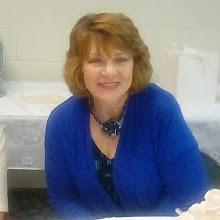After referencing Oprah's struggles with her weight in yesterday's blog, her program yesterday discussed weight loss and food issues. I almost never watch Oprah, but decided to tune in when I saw what the topic would be.
The segment started with a video of women who had taped themselves talking about their own struggle with weight. I saw myself in their stories over and over again as these women were in tears, even as they ate. They hated how they looked and felt, and they hated the fact that food held so much power over them. I remember feeling trapped in that same sad cycle.
Oprah's guest wasn't there to talk about a new weight loss plan (and I wouldn't be interested in hearing about that, because I already know we have the best one on the planet!). She talked about the need to break the emotional relationship we have with food, believing that once that emotional relationship is severed, we will be able to make the choices needed to get healthy. When we turn to food to help us deal with, or cover up, emotional pain, Oprah's guest said "what food does at that point is it doubles your pain, rather than make it go away. You're still in pain about what you were in pain about before you ate, but now you've added a whole level of more discomfort which is: 'Oh, I can't believe I ate this. What's wrong with me? Am I ever going to get my life together? Is it ever going to get better?' Then you're feeling like a failure on top of the discomfort you were feeling before."
Does anybody else identify with this? Part of my own journey was finally realizing that food didn't fix anything. Turning to food to deal with my stress, anger, boredom, etc. only left me feeling worse, and the stress, etc. was still there. I feel bad, so I'd eat, which would make me feel worse, so I'd eat some more.
Amazingly, what started the process of ending this cycle was the cost of this program. When I placed my first order, it was a definite financial stretch for me. I knew I could only justify the expense if I was actually following the program, so I made a commitment to stay on plan and not cheat. I reasoned that if I wanted to cheat on a diet, I had an entire bookshelf full of different diet books and could just pull one of my books off the shelf and cheat away. Because I had invested almost $300 in a four week order, I decided to just follow the program for four weeks. Since it takes a minimum of three days to get into the fat-burning state, I also understood that if I ate off plan and kicked myself out of the fat-burning state, it would take another three days to get back in. Doing the math and figuring that each meal costs about $2, I figured that a cheat would cost me about $30 ($2/meal x 5 meals x 3 days).
When I committed to staying on plan for four weeks in order to justify the cost of the program, I really hadn't factored in the amount of emotional eating I did - I had never connected the dots. When negative emotions cropped up early in my program, I had a choice to make. I recognized that I wasn't physically hungry (thanks to the fat-burning state!), and I recognized that it was a different kind of hunger that had me longing for something - anything - off plan. Because I didn't want to mess up what was finally working for me, it was then that I finally did what I wish I would have done years ago. I turned to the true Source of the comfort I needed - my Heavenly Father. I brought my need to Him and look to Him to meet those needs - and He did :-).
Two things happened: first, I recognized that the hunger wasn't physical, but emotional and I acknowledged the feeling instead of burying it. Second, instead of turning to food, I turned to the Lord. As I did that over and over again, I began to realize that food had never solved anything for me and never would. I realized that every time I turned to the Lord instead of reaching for chocolate, there was always a huge sense of relief when the temptation passed and I had once again resisted the pull. Over time, the temptation to turn to food lessened and my ability to discern physical hunger from emotional hunger sharpened. Eventually, the emotional bondage to food was severed. I cannot describe the joy and the freedom that comes from knowing that it's gone for good.
The food part of this program is the easy part. Understanding what drives our emotional eating and then addressing those issues is the hard part, but it is SO worth the effort! Addressing those issues means different things to each of us, and sometimes it involves working with a professional counselor (I've spent time in counseling, too).
Work this program - both the food part and the head/heart part. It's not always easy, but it's worth it! The choice is yours . . . choose wisely :-)
Subscribe to:
Post Comments (Atom)

No comments:
Post a Comment